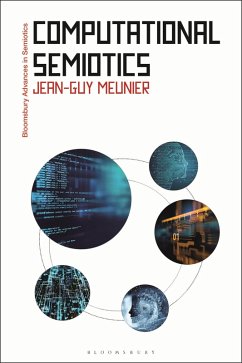Can semiotics and computers be compatible? Can computation advance semiotics by enhancing the scientific basis of the theory of signs?
Coupling semiotics, a philosophical and phenomenological tradition concerned with theories of signs, with computation, a formal discipline, may seem controversial and paradoxical. Computational Semiotics tackles these controversies head-on and attempts to bridge this gap. Showing how semiotics can build the same type of conceptual, formal, and computational models as other scientific projects, this book opens up a rich domain of inquiry toward the formal understanding of semiotic artifacts and processes. Examining how pairing semiotics with computation can bring more methodological rigor and logical consistency to the epistemic quest for the forms and functions of meaning, without compromising the important interpretive dynamics of semiotics, this book offers a new cutting-edge, model-driven theory to the field.
Coupling semiotics, a philosophical and phenomenological tradition concerned with theories of signs, with computation, a formal discipline, may seem controversial and paradoxical. Computational Semiotics tackles these controversies head-on and attempts to bridge this gap. Showing how semiotics can build the same type of conceptual, formal, and computational models as other scientific projects, this book opens up a rich domain of inquiry toward the formal understanding of semiotic artifacts and processes. Examining how pairing semiotics with computation can bring more methodological rigor and logical consistency to the epistemic quest for the forms and functions of meaning, without compromising the important interpretive dynamics of semiotics, this book offers a new cutting-edge, model-driven theory to the field.

